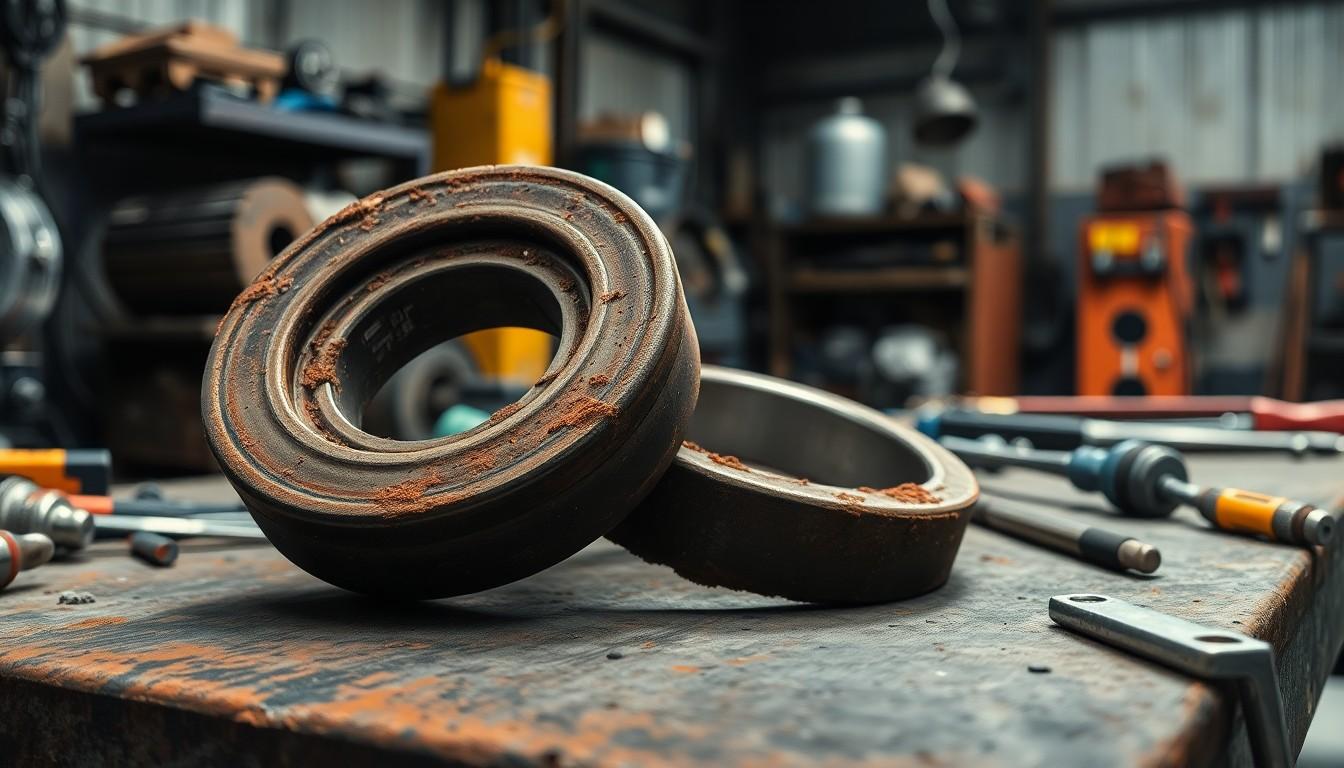When it comes to vehicle maintenance, wheel bearings are crucial components that we often overlook until problems arise. These small but mighty parts keep our wheels spinning smoothly and safely. Unfortunately, not all wheel bearing brands deliver the quality and reliability we need for our vehicles.
We’ve researched extensively and consulted with automotive experts to identify which wheel bearing manufacturers have consistent quality issues, premature failures, or poor customer service. Choosing the wrong brand can lead to dangerous driving conditions, costly repairs, and frustrating breakdowns. In this guide, we’ll expose the wheel bearing brands that mechanics and experienced drivers recommend avoiding at all costs.
Understanding Wheel Bearings and Their Importance
Wheel bearings are critical components that allow your vehicle’s wheels to rotate smoothly with minimal friction. These precision-engineered parts consist of steel balls or tapered rollers held together by a metal ring, creating a smooth surface for wheels to spin upon. Located between the wheel hub and the axle, wheel bearings support the entire weight of your vehicle while handling both radial and axial loads during driving.
The primary function of wheel bearings is to reduce friction between the stationary and moving parts of your wheel assembly. Proper wheel bearings maintain wheel alignment, ensure smooth rotation, and help distribute weight evenly across your vehicle. They’re designed to withstand extreme conditions including heat, cold, moisture, and constant stress from various driving surfaces.
Quality wheel bearings directly impact several crucial aspects of your driving experience:
- Safety: Faulty bearings can cause wheels to seize or even detach from the vehicle
- Handling: Properly functioning bearings ensure precise steering response and vehicle control
- Ride comfort: Good bearings eliminate vibrations and unusual noises during travel
- Fuel efficiency: Reduced friction from quality bearings improves overall fuel economy
- Tire longevity: Even weight distribution helps tires wear more uniformly
Wheel bearings typically last between 85,000-100,000 miles under normal driving conditions, though this varies based on driving habits, road conditions, and bearing quality. Signs of failing wheel bearings include grinding noises, steering wheel vibrations, uneven tire wear, and vehicle pulling to one side during braking.
Modern vehicles use either ball bearings or roller bearings, with each type offering different advantages. Ball bearings handle high speeds efficiently but manage less weight, while roller bearings support heavier loads but generally operate at lower speeds. The selection between these types depends on your vehicle’s design specifications and intended use.
Signs of Poor Quality Wheel Bearings
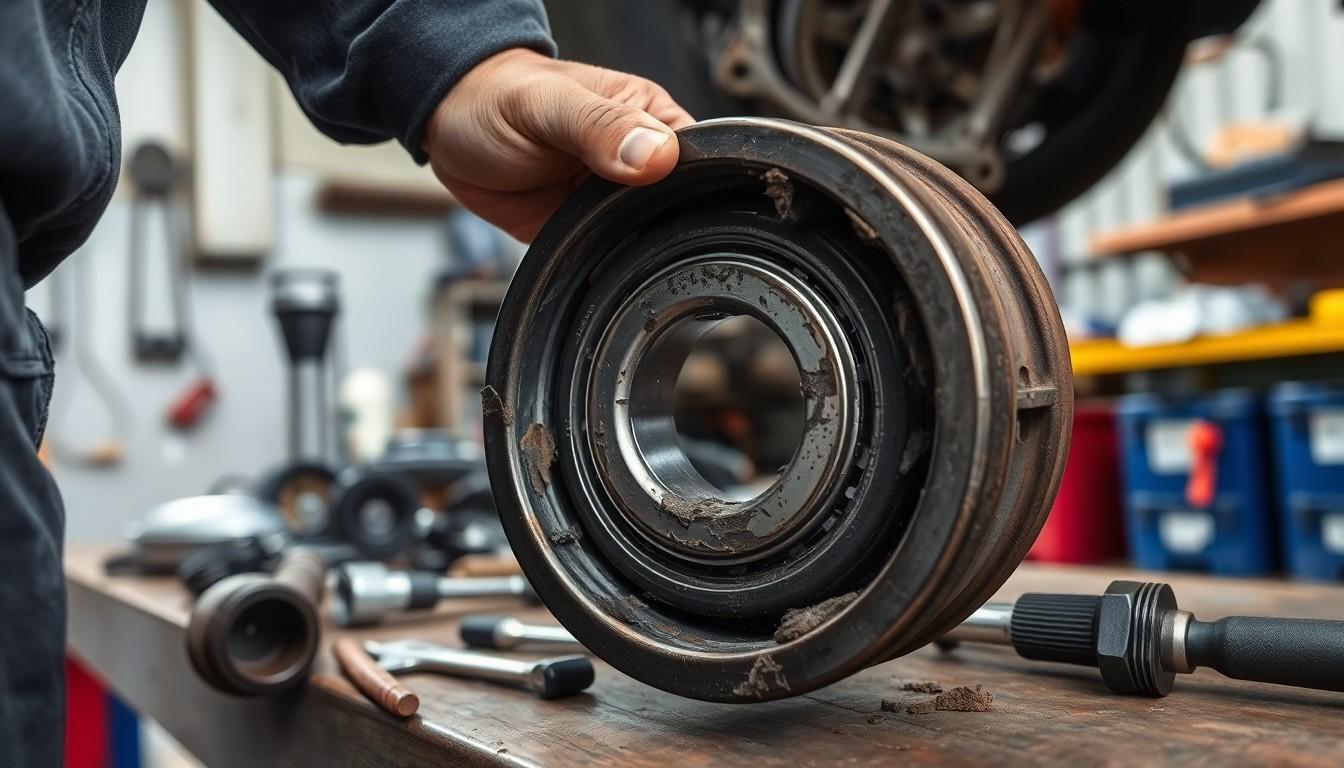
Identifying poor quality wheel bearings before they cause important damage is crucial for vehicle safety and avoiding costly repairs. These telltale signs can help you recognize when you’re dealing with an inferior bearing brand or a failing unit.
Excessive Noise and Vibration
Poor quality wheel bearings frequently manifest through distinct noises and vibrations during vehicle operation. Grinding or growling sounds emanating from the wheel area serve as clear indicators of bearing deterioration. These sounds typically intensify during turns or when accelerating. Vibrations felt through the steering wheel or seat represent another common symptom of substandard bearings. Such issues often result from bearings that are worn out or improperly installed—problems commonly associated with lower-quality brands. Pay attention to these warning signals, as they’re usually the first indication that your wheel bearings aren’t performing as they should.
Premature Failure Rates
Inferior wheel bearing brands consistently demonstrate higher premature failure rates compared to reputable manufacturers. The lifespan of these lower-quality options is notably shorter, often failing well before the expected 85,000-100,000 mile mark. Brands like Wheel Master and Detroit Axle have garnered negative reputations for their bearings requiring replacement much sooner than anticipated. This pattern of early wear and tear leads to additional maintenance expenses and potential safety hazards. Regular inspections reveal these quality differences, with subpar bearings showing excessive play or roughness during manual testing. The frequency of replacements becomes a reliable indicator of bearing quality, with the poorest performers requiring service multiple times within a relatively short period.
Wheel Bearing Brands With Poor Reliability Records
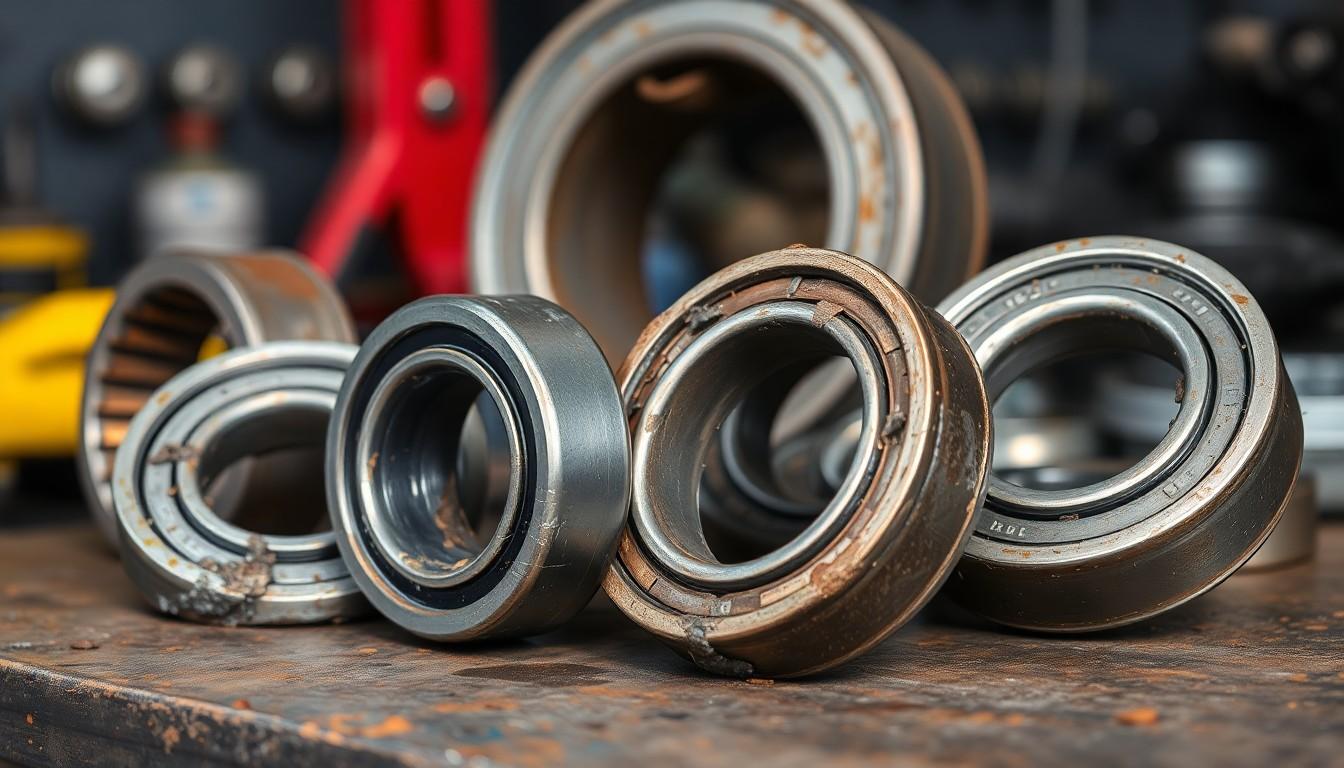
Our extensive research has identified several wheel bearing brands with consistently poor reliability records that vehicle owners should approach with caution. These manufacturers have developed negative reputations due to frequent failures, inconsistent quality, and premature wear issues that can compromise vehicle safety and performance.
Wheel Master
Wheel Master bearings exhibit important consistency problems that make them unreliable for long-term use. Users frequently report premature failures with these bearings, often experiencing complete breakdowns well before their expected service life. The brand’s quality control seems inadequate, resulting in bearings that may initially function properly but deteriorate rapidly under normal driving conditions. This inconsistency means even if one Wheel Master bearing performs acceptably, the next purchase might fail within months.
Yukon Gear & Axle
Yukon Gear & Axle products suffer from concerning premature wear issues that compromise their reliability. The bearings from this manufacturer often develop excessive play and roughness after relatively short periods of use. Many vehicle owners report having to replace Yukon bearings much earlier than expected, creating unnecessary maintenance costs and inconvenience. These reliability concerns make Yukon a brand that professionals often recommend avoiding even though their attractive pricing.
Detroit Axle
Detroit Axle bearings attract buyers with their affordability but disappoint with their scarce durability. The initial cost savings quickly evaporate when these bearings require replacement after short service periods. Vehicle owners commonly report unusual noises and vibrations developing within the first year of installation. Detroit Axle’s bearings typically fail to deliver on their promised performance specifications, making them a poor investment for those seeking reliable components.
Budget Brands With Quality Control Issues
Budget wheel bearing manufacturers frequently sacrifice quality control to achieve lower price points. Wheel Master, Yukon Gear & Axle, and Detroit Axle represent prime examples of brands that prioritize affordability over consistency and durability. These companies typically employ less rigorous testing protocols, resulting in bearings with variable performance characteristics even within the same product line. Manufacturing tolerances often fall outside acceptable ranges, causing premature wear, excess heat generation, and eventual failure.
Quality control issues manifest in several ways with these budget brands. Improper heat treatment leads to bearings that are either too soft (wearing quickly) or too brittle (cracking under load). Inconsistent material composition creates weak points that deteriorate rapidly under normal driving conditions. Assembly processes may introduce contaminants or inadequate lubrication, both fatal flaws for precision components like wheel bearings.
Counterfeit and Knock-Off Concerns
Counterfeit wheel bearings present serious safety risks that extend beyond mere reliability concerns. Unverified Chinese manufacturers produce many of these questionable components, with brands like BMG receiving particularly negative feedback from users. These knockoffs often use inferior materials that can’t withstand the loads and stresses experienced during normal driving conditions. Counterfeit bearings typically lack proper heat treatment, precision machining, and quality lubrication necessary for safe operation.
The market has seen a important influx of imitation products designed to mimic reputable brands while cutting corners on materials and manufacturing. These counterfeits lack the rigorous testing protocols employed by legitimate manufacturers, resulting in bearings that may fail catastrophically without warning. Shopping exclusively through authorized dealers and avoiding suspiciously inexpensive options helps reduce the risk of purchasing dangerous knockoff bearings. Legitimate OEM bearings from established brands like Timken, SKF, and FAG provide significantly better reliability and safety compared to counterfeit alternatives.
Common Manufacturing Defects in Low-Quality Bearings
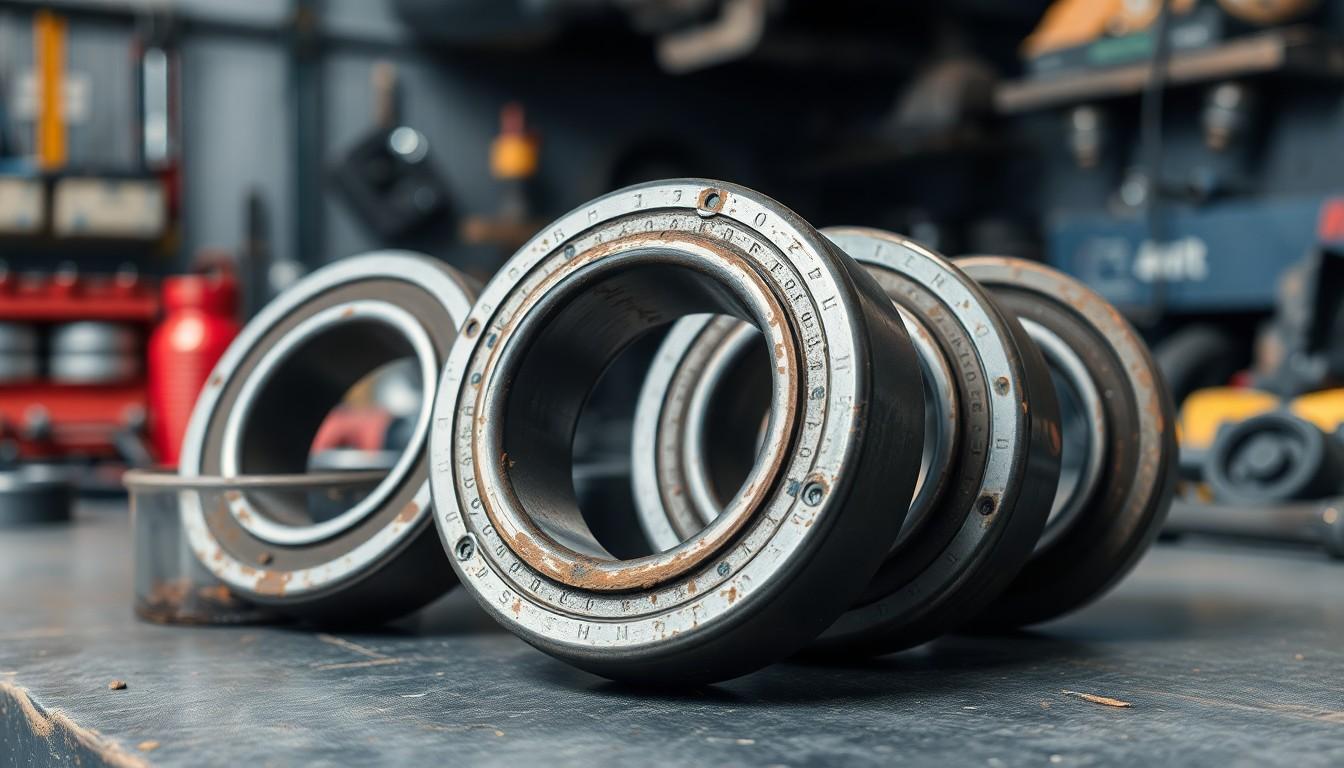
Manufacturing defects significantly impact wheel bearing performance and longevity. These defects often result from poor quality control processes and shortcuts taken during production, leading to bearings that fail prematurely and compromise vehicle safety.
Material Shortcomings
Low-quality wheel bearings frequently suffer from substandard material composition issues. Companies like Detroit Axle use inferior metals and alloys that can’t withstand normal operational stresses, resulting in bearings with dramatically shortened lifespans. These materials often lack proper heat treatment, making them more susceptible to deformation under normal load conditions. Surface hardness inconsistencies lead to uneven wear patterns, creating rough operation long before the expected service interval. The steel quality used in budget bearings typically contains more impurities, decreasing structural integrity and increasing the likelihood of microscopic fractures developing during use.
Design Flaws
Design flaws plague many unreliable wheel bearing brands, creating fundamental weaknesses. Wheel Master and Yukon Gear & Axle products exhibit poor engineering decisions that fail to account for real-industry operational stresses. Inadequate seal designs allow contaminants to penetrate the bearing housing, accelerating wear and causing premature failure. Insufficient clearance tolerances result in bearings that either bind or develop excessive play during operation. Poor raceway geometry creates uneven load distribution across the bearing surfaces, causing concentrated wear patterns and early failure. These design shortcomings manifest as noise issues, vibration problems, and eventually complete bearing failure—often at crucial moments when vehicle stability matters most.
How to Identify Reputable Wheel Bearing Brands
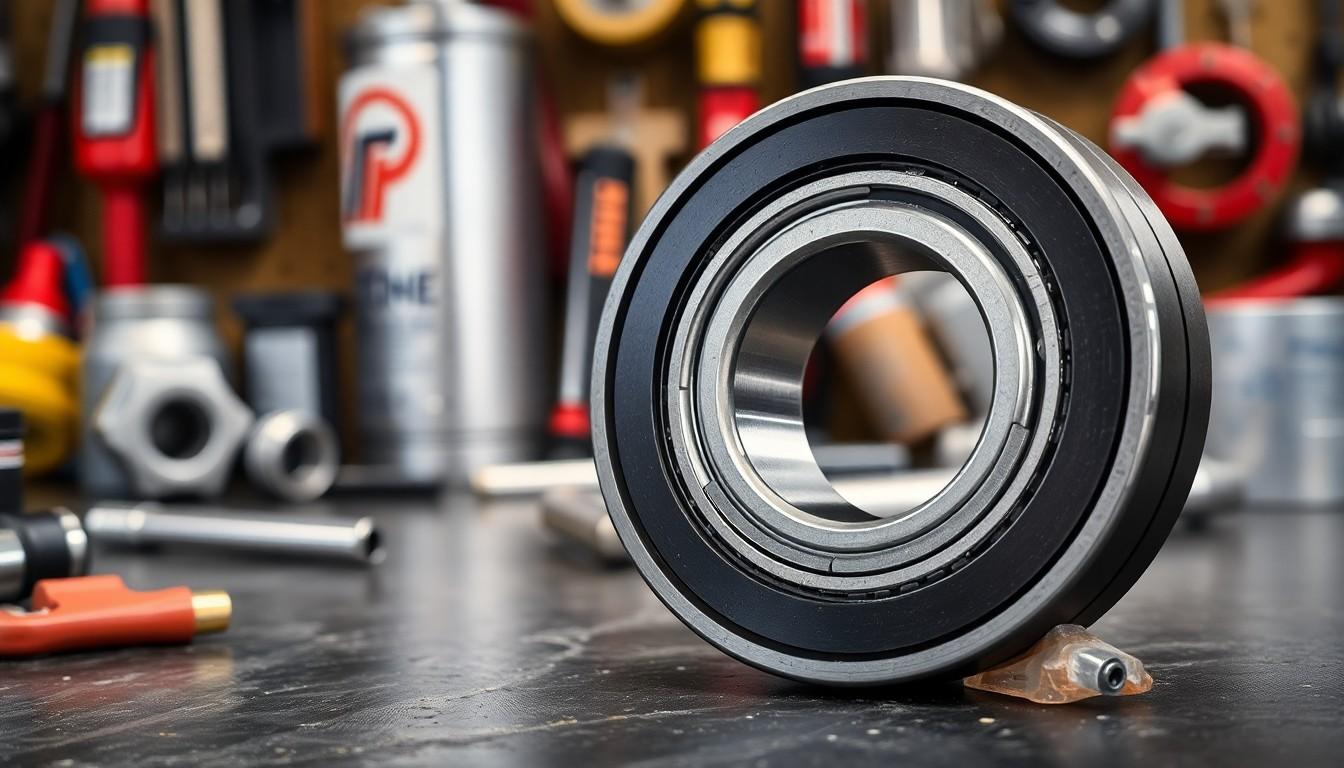
Identifying high-quality wheel bearing brands requires attention to exact indicators that separate premium products from subpar alternatives. Our research shows that certain manufacturers consistently outperform others in durability, precision, and overall reliability.
Quality Indicators to Look For
OEM approval stands as the strongest indicator of wheel bearing quality, with manufacturers meeting rigorous standards set by vehicle producers. Bearings carrying original equipment manufacturer certification generally offer superior performance and compatibility with your exact vehicle make and model. These components undergo extensive testing to ensure they meet exact specifications for safety and longevity.
Industry certifications provide another reliable marker of bearing quality, with reputable brands adhering to ISO standards and ABMA (American Bearing Manufacturers Association) specifications. Look for these certification markings on packaging or product descriptions as they verify the manufacturer follows standardized quality control processes during production.
Manufacturing reputation plays a crucial role in identifying trustworthy brands, with companies like SKF, FAG, and Timken building decades-long histories of excellence. These established manufacturers invest heavily in research, development, and quality control, though recent reports indicate some slight quality decline in certain product lines from these previously unblemished brands.
User feedback across multiple independent platforms offers valuable insights into real-industry performance of different bearing brands. BCA/NTN bearings consistently receive positive reviews from mechanics and vehicle owners, maintaining their status among the few manufacturers with near-perfect reputations for reliability. NSK bearings similarly earn praise for their precision engineering and durability in automotive applications.
Material quality directly impacts a bearing’s lifespan, with premium brands using high-grade steel and precision manufacturing techniques. Examine the finish quality, weight, and overall construction of bearings when possible – reputable products typically feature smooth surfaces, consistent coloration, and substantial heft compared to cheaper alternatives.
Warranty terms often reflect a manufacturer’s confidence in their product, with longer coverage periods indicating higher expected durability. Companies offering comprehensive warranties typically produce bearings that exceed minimum industry standards, providing additional peace of mind for your investment.
Construction precision affects both noise levels and operational longevity, with top-tier bearings featuring exact tolerances and superior sealing. NSK and SKF bearings demonstrate exceptional attention to detail in their machining processes, resulting in smoother operation and resistance to contamination that extends service life significantly.
Price vs. Quality: Finding the Right Balance
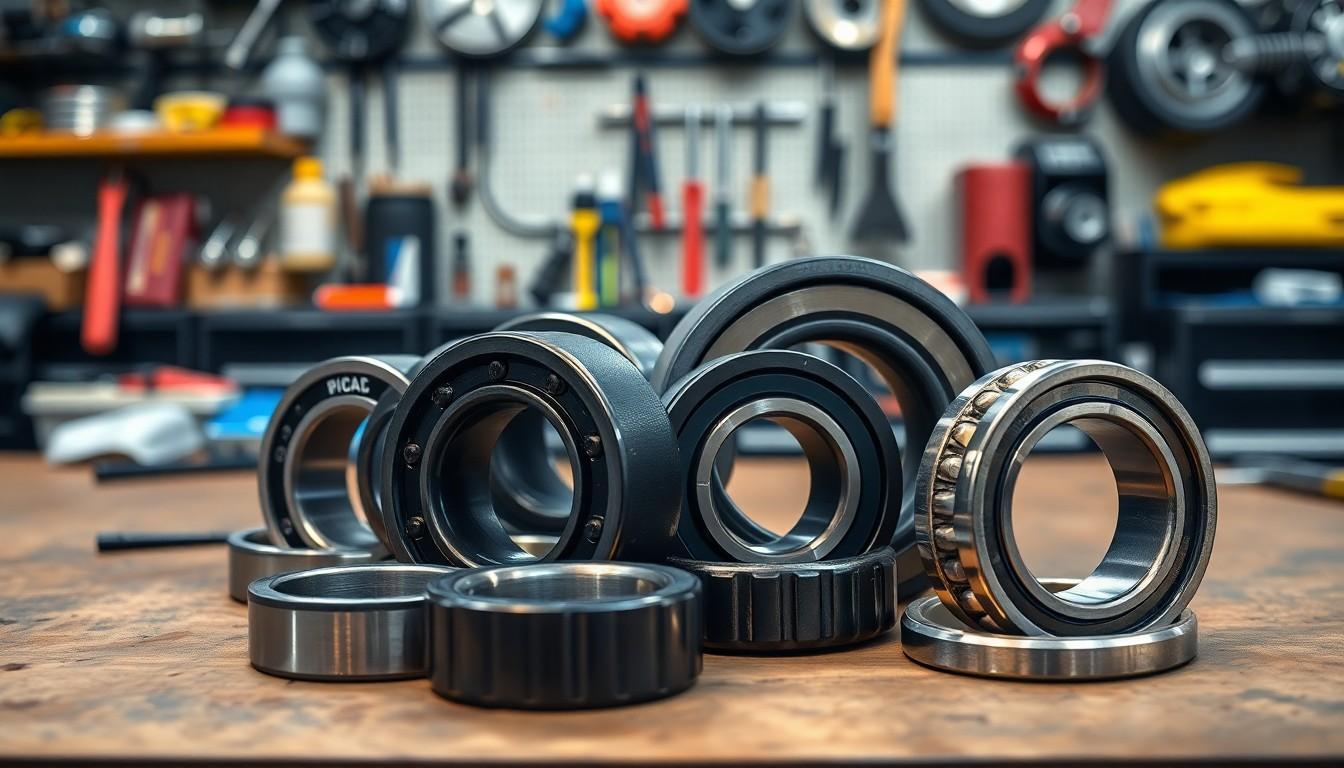
Finding the sweet spot between price and quality in wheel bearings requires careful consideration. Many vehicle owners face the dilemma of choosing between budget-friendly options and premium products that promise greater durability.
Budget Brands and Their Limitations
Budget wheel bearing brands often attract consumers with their lower price points, but this initial savings frequently leads to higher long-term costs. Detroit Axle exemplifies this pattern, offering affordable bearings that lack durability and require frequent replacements. Similarly, Valucraft and Summit bearings cost less upfront but don’t last as long as premium alternatives, negating any initial savings through increased maintenance frequency.
Premium Options Worth the Investment
Investing in quality wheel bearings typically pays dividends through extended service life and improved performance. Timken bearings stand out as reliable aftermarket options that balance cost with impressive durability. SKF remains highly regarded even though some recent concerns, particularly for German vehicles. FAG and NSK match the quality standards of premium brands while offering competitive pricing for quality-conscious consumers.
Making an Well-informed choice
Real-user feedback provides valuable insights beyond manufacturer claims when evaluating wheel bearing brands. BCA/NTN bearings have earned a relatively unblemished reputation for consistency and quality, making them excellent candidates for those seeking reliable options. Brands like Wheel Master, Yukon Gear & Axle, Motor City, and Master Pro (MPB) have received consistent criticism for quality issues and should be approached with caution.
The true cost of wheel bearings extends beyond the purchase price to include installation expenses and potential vehicle downtime. Premium bearings from reputable manufacturers like Timken or SKF may cost more initially but offer superior performance characteristics and longer service intervals, resulting in better value over time.
Conclusion
Choosing the right wheel bearings is crucial for your vehicle’s performance and safety. Avoiding brands like Wheel Master Detroit Axle and Yukon Gear & Axle can save you from premature failures and costly repairs down the road.
We’ve seen how quality matters with these precision components that keep your wheels turning smoothly. While budget options might seem attractive initially they often lead to higher long-term costs and potential safety risks.
Instead invest in trusted manufacturers like Timken SKF FAG and NSK. Remember that the true value of wheel bearings extends beyond their price tag to include durability reliability and peace of mind. Your vehicle deserves components that will perform consistently for their expected lifespan.
Frequently Asked Questions
What are wheel bearings and why are they important?
Wheel bearings are precision-engineered components that allow your vehicle’s wheels to rotate smoothly with minimal friction. They support the vehicle’s weight, maintain wheel alignment, and ensure proper rotation. Quality wheel bearings are crucial for safety, handling, ride comfort, fuel efficiency, and tire longevity. Without properly functioning wheel bearings, your vehicle would experience excessive friction, heat buildup, and potential wheel failure.
How long do wheel bearings typically last?
Wheel bearings typically last between 85,000-100,000 miles under normal driving conditions. However, their lifespan can vary based on driving habits, road conditions, and bearing quality. Premium brands tend to last longer than budget options. Regular maintenance and avoiding deep water, excessive loads, and rough terrain can help extend their life.
What are signs of failing wheel bearings?
Key signs of failing wheel bearings include grinding or growling noises while driving, especially when turning; vibrations or wobbling in the steering wheel; uneven tire wear; and looseness or play in the wheel. You might also notice your ABS warning light coming on. If you experience any of these symptoms, have your vehicle inspected immediately as bearing failure can lead to serious safety issues.
Which wheel bearing brands should be avoided?
Brands with poor reliability records include Wheel Master (consistency problems), Yukon Gear & Axle (excessive wear issues), and Detroit Axle (lack of durability despite affordability). Budget brands often sacrifice quality control for lower prices, leading to premature failures. Counterfeit bearings sold through unauthorized channels should also be avoided as they pose serious safety risks.
What’s the difference between ball bearings and roller bearings?
Ball bearings use spherical balls between races and are ideal for higher speeds but handle less weight. Roller bearings use cylindrical rollers that provide greater load capacity but are typically used at lower speeds. The choice between these types depends on your vehicle’s design and intended use. Most modern vehicles use a specific type as determined by the manufacturer’s engineering requirements.
How can I identify quality wheel bearings?
Look for OEM approval, industry certifications, and established manufacturer reputation. Reputable brands include SKF, FAG, Timken, BCA/NTN, and NSK. Quality bearings will have precise construction, use high-grade materials, and offer solid warranty terms. User reviews from independent platforms can also provide insights into real-world performance and reliability.
Is it worth paying more for premium wheel bearing brands?
Yes. While budget brands like Detroit Axle, Valucraft, and Summit are cheaper initially, they often lead to higher long-term costs due to more frequent replacements, additional labor costs, and potential vehicle downtime. Premium brands like Timken, SKF, and FAG offer better reliability, safety, and performance, making them more cost-effective over time despite higher upfront costs.
How often should wheel bearings be inspected?
Wheel bearings should be inspected during regular tire rotations (approximately every 5,000-7,000 miles) and during brake service. A professional can check for excessive play or roughness that indicates wear. More frequent inspections are recommended if you regularly drive in harsh conditions, hear unusual noises, or feel vibrations while driving.
Can I replace wheel bearings myself?
While technically possible, wheel bearing replacement requires specialized tools, mechanical knowledge, and precision. Improper installation can lead to premature failure or safety issues. For most vehicle owners, professional installation is recommended. The process involves removing the wheel, brake caliper, and rotor, then pressing out the old bearing and installing the new one with exact torque specifications.
How can I avoid purchasing counterfeit wheel bearings?
Purchase only from authorized dealers, official manufacturer websites, or reputable auto parts stores. Be suspicious of unusually low prices, as counterfeit bearings are often sold at significant discounts. Check for authentic packaging, proper labeling, and manufacturing codes. Verify the seller’s reputation and return policy before purchasing, and inspect the bearings for quality issues upon receipt.

